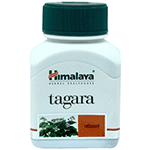Principen - Comprehensive Usage Guide: instructions, indications, composition, side effects
Composition
- Active Ingredient: Ampicillin (as ampicillin trihydrate)
- Excipients: May include colloidal silicon dioxide, magnesium stearate, sodium starch glycolate, and other inactive ingredients depending on the formulation.
Official Forms
- Capsules: Available in various strengths, including 250 mg and 500 mg capsules.
- Powder for Injection: Available in vials containing ampicillin sodium equivalent to 500 mg or 1 g of ampicillin.
Pharmacological Group
Principen belongs to the pharmacological group of antibacterial agents, specifically penicillins (ATC code: J01C A04).
Pharmacological Properties
- Pharmacodynamics: Ampicillin exerts its bactericidal effect by inhibiting bacterial cell wall synthesis, leading to cell lysis and death. It is active against a broad spectrum of Gram-positive and Gram-negative bacteria, including Streptococcus spp., Staphylococcus spp., Escherichia coli, and Proteus mirabilis.
- Pharmacokinetics: Following oral administration, ampicillin is rapidly absorbed from the gastrointestinal tract. It is distributed widely in various body tissues and fluids, achieving therapeutic concentrations in respiratory, urinary, and soft tissue infections. Ampicillin is primarily excreted unchanged in the urine via renal filtration and tubular secretion.
Indications
Principen is indicated for the treatment of various bacterial infections caused by susceptible pathogens, including:
- Upper respiratory tract infections (e.g., sinusitis, pharyngitis, tonsillitis)
- Lower respiratory tract infections (e.g., bronchitis, pneumonia)
- Urinary tract infections (e.g., cystitis)
- Skin and soft tissue infections
- Otitis media
- Endocarditis prophylaxis in dental procedures
- Gastrointestinal infections (e.g., typhoid fever, bacterial gastroenteritis)
Contraindications
Principen is contraindicated in individuals with a history of hypersensitivity to penicillins or any component of the formulation, as well as those with a history of severe allergic reactions (e.g., anaphylaxis, angioedema) to beta-lactam antibiotics. It should not be used in patients with infectious mononucleosis due to the risk of developing a maculopapular rash.
Interactions
Principen may interact with various medications, including oral contraceptives, anticoagulants, and probenecid, potentially altering their efficacy or increasing the risk of adverse effects. Caution is advised when co-administering Principen with other drugs.
Specifics of Use
Principen capsules should be taken orally with or without food, preferably at evenly spaced intervals throughout the day, and swallowed whole with a full glass of water. The dosage and duration of therapy depend on the type and severity of the infection, as well as patient factors such as age and renal function.
Dosage and Administration
The recommended dosage of Principen varies depending on the indication, severity of the infection, and patient characteristics. Healthcare providers will determine the appropriate dose and treatment duration based on clinical judgment and guidelines.
Side Effects
Common side effects of Principen may include gastrointestinal disturbances (e.g., nausea, vomiting, diarrhea, abdominal pain), rash, and allergic reactions. Serious adverse effects such as pseudomembranous colitis and anaphylaxis are rare but require immediate medical attention if they occur.
Storage and Shelf Life
Principen capsules should be stored at room temperature (15-30°C) in a dry place, protected from light and moisture. Once reconstituted, the oral suspension should be refrigerated and discarded after the specified time period (usually 7-14 days).
Pregnancy and Breastfeeding
Principen is generally considered safe for use during pregnancy and breastfeeding. However, caution is advised, and the potential benefits should outweigh the potential risks to the fetus or infant. Consultation with a healthcare provider is recommended in these situations.
Impact on Motor Functions
Principen does not typically impair cognitive or motor functions. However, patients should be cautious when driving or operating machinery, especially if they experience dizziness or other central nervous system side effects.
Overdose
In the event of overdose, supportive measures should be initiated as needed. Principen overdoses are rarely associated with severe toxicity. Hemodialysis is not effective in removing ampicillin from the bloodstream due to its high protein binding and extensive tissue distribution.
Conclusion
Principen is a valuable medication for the treatment of bacterial infections, offering effective relief for a wide range of respiratory, urinary, and soft tissue infections. By understanding its mechanisms of action, indications, dosage, and precautions, patients and healthcare providers can work together to achieve optimal treatment outcomes. Always consult a healthcare provider for personalized medical advice.



